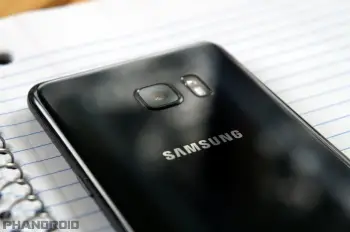
Don’t hold your breath for a Galaxy S8 with 8GB of RAM
We’re nearing January, which means the 2017 launch rumors for new smartphones are starting to ramp up. The biggest device on the way is undoubtedly the Samsung Galaxy S8.
It’s particularly notable because it’ll be Samsung’s first impression after the Galaxy Note 7 debacle, and we know they’ll want to wow the world with it. And considering 2016 was a year of refinement for the company, we’d expect some neat innovations to be included for their 2017 efforts.
One of the early rumors so far is that the device will have 8GB of RAM, alongside word that Samsung will introduce a UFS 2.1 module for more efficient storage performance.
But before we jump with joy, it’s important to take a step back and consider the plausibility of such a rumor. For starters, while many pre-launch rumors regarding Galaxy smartphones tend to be accurate, there are just as many which turn out to be false.
Case in point: the Samsung Galaxy Note 7 having 6GB of RAM. This was an interesting case because there actually was a 6GB model in tow, however Samsung only ever had plans to launch it in China to compete with the country’s manufacturers’ ongoing fascination with ridiculous RAM capacity. Then they decided to scrap those plans for some odd reason (which we now know might have been due to impending plans to end production on all variants of the device).
Elsewhere, they don’t feel the need to do that. The Samsung Galaxy S7 and Galaxy Note 7 (before its untimely demise) were both doing well enough with 4GB of RAM. Why? Because the phones work great at that point and they felt there’s little need to go beyond that.
That’s not to say things couldn’t change with the Samsung Galaxy S8, though. If it’s a question of cost efficiency, 6GB RAM modules should only be getting cheaper from here on out and Samsung may opt to use those “just because.” But where does the benefit of 8GB come from? It’ll likely be more expensive, and thanks to the way Android handles memory management, would probably translate to marginal returns on investment.
Of course, without knowing the price of 8GB modules or why Samsung opted not to go with 6GB in their 2016 phones or any other bits of information that could help us determine their plans, the points are all moot. We’re keeping our fingers crossed for 8GB of RAM in the Samsung Galaxy S8, but we wouldn’t bet on it (nor would we necessarily be mad if it doesn’t pan out).